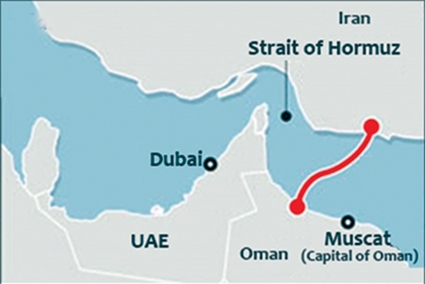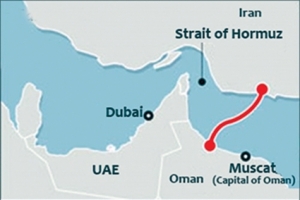Iran Aims to Attract Europe, Asia to Build Oman Gas Pipeline
Iran plans to attract European and Asian oil and gas companies, for example Total, Royal Dutch Shell, Uniper, E.ON, Kogas, Mitsui & Co. and others, to the construction of a gas pipeline to Oman, reports the Iranian edition of the Financial Tribune, referring to sources in the National Iranian Oil Company (NIOC).
At the end of last year, NIOC Executive Director Ali Cardord said that the Islamic Republic is interested in the participation of Russian companies, in particular Gazprom, in the construction of the Iran-Oman gas pipeline.
According to Cardord, the Iranian authorities are ready to begin construction of the ground section of the pipeline, through which the “blue fuel” will be transported from Iran to Oman.
“The results of the talks between Tehran and Muscat say that Iran will build the ground part of the pipeline, and we are ready to start work,” said Hamid Reza Araki, managing director of the Iranian National Gas Company (NIGC).
About a year ago, Iran and Oman signed a preliminary agreement on the project. Its cost, by some estimates, is about $1.2 billion. In 2013, Iran and Oman agreed that the Iranian gas supplies to Oman would be 28 million cubic meters of gas per day for 15 years. Prior to that, it was reported that the supply of "blue fuel" through the new gas pipeline could begin as early as 2020.
Russian Gazprom earlier also reported that it was studying the possibility of participating in the Iran LNG project. This project is now in the spotlight of the Islamic Republic which, despite its own efforts to implement the project from Iran, was unable to do so due to a lack of foreign investment. Meanwhile, Tehran does not rule out increasing its LNG export.
A gas pipeline to Oman is needed by Tehran also because it is supposed that the liquefaction of Iranian "blue fuel" will take place at the Qalhat factory in Oman. In addition, the Iranians are negotiating with Norwegian companies on the construction of a floating LNG plant.
Meanwhile, the Russian side is exploring possibilities for implementing projects in Iran for the extraction, transportation and processing of hydrocarbon raw materials. In November 2017, Gazprom and the Iranian NIOC signed a memorandum of understanding. While this is a non-binding document, it nevertheless, allows companies to begin preparing a feasibility study for a gas pipeline project from Iran to India through Pakistan.
Dimitri Dolaberidze











